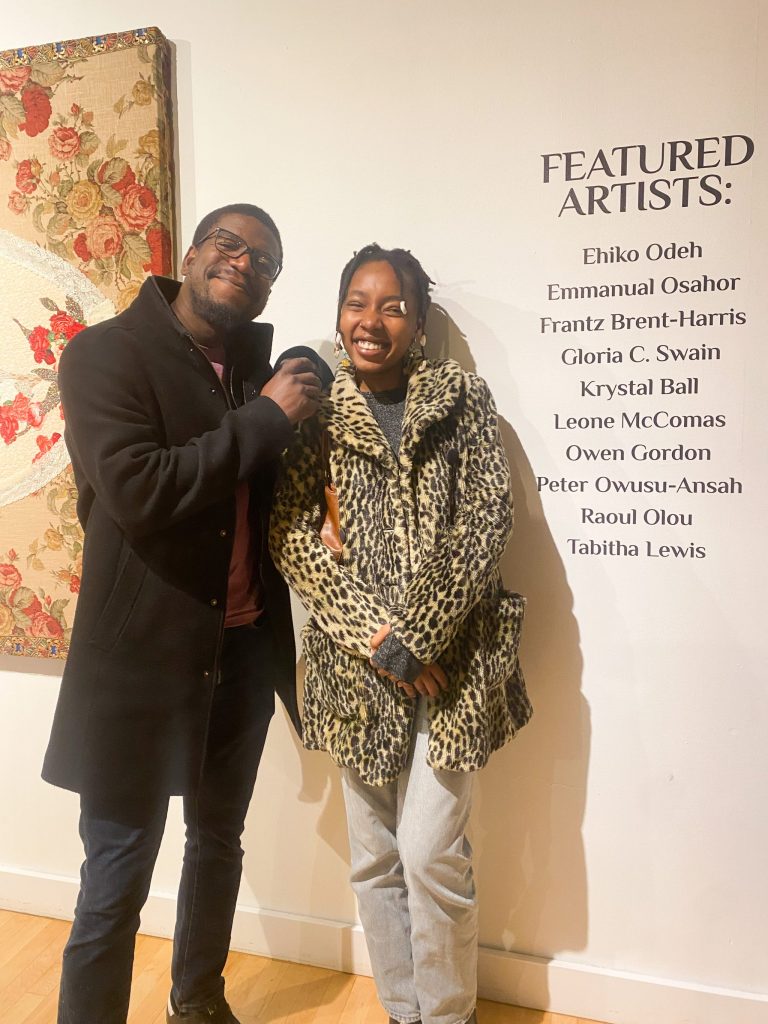Diasporas: Threads Connecting Our Origins, an exhibition exploring the works of 11 Indigenous African artists of the diaspora or descendants of African diasporic peoples, was recently showcased at THE MUSEUM in Kitchener.
The artwork asked viewers to consider the dispersions associated with the transatlantic slave trade from the 16th to 19th centuries, as well as the dispersion of people who explored and traveled around the world seeking adventures.
A corresponding discussion on Black Canadian and African diasporic perspectives and understandings of identity in Canada followed the exhibition. This exhibition was curated by Karen Carter, who also moderated the talk session, while the featured artists for the dialogue included Ehiko Odeh and Emmanuel Osahor.
“We created this exhibition, which explores the concept of home and displacement that resonates with marginalized people. It is our way of displaying Black artists and providing a sense of understanding and familiarity to those who may not necessarily relate to the idea of being away from home,” Carter said.
The works presented in the exhibition examined the various ways in which the featured artists’ works are a commentary on their understanding of their histories. Historic connections between Indigenous Africans and their descendants are broken and yet reconnected again in countries and cities all over the world where a forced duality links them in new and difficult ways.
The exhibition reminds viewers that Black people are not a homogenous group that Black history and culture are Canadian history and culture and they have been here before “Canada” and will continue to be here in the future in many ways and across many aspects of society.
The exhibition features several artists, including Ehiko Odeh, a multidisciplinary artist born in Lagos, Nigeria and based in Toronto. Odeh’s work explores decolonization, mental health and wellness and the representation of melanated hair.
“My favourite work from this exhibition is called ‘One Love Hair Salon Poster’, which is inspired by my childhood memories and nostalgia of going through hair magazines and doing my hair at home,” Odeh said.
Odeh is planning on creating a series of hair salon posters eliciting the nostalgia and unity of hairstyling and hair-making.
“It’s amazing to explore and share the diverse beauty of creating different hairstyles and hair products that we have used for generations.” Odeh said.
“My artwork is always bright, vivid, expressive, wild, loud and in your face, just like my personality,” she said.
Emmanuel Osahor, an artist from Nigeria who now resides and works in Toronto, presented a distinct focus on garden space in his artwork. He likes to engage with the idea of beauty for both survival and flourishing. His artwork is characterized by playful experimentation with materials and techniques to illustrate the complexities of garden spaces, which function as sanctuaries for beauty and care.
“The fact that we have a lot of shared stories and that it is truly beautiful, like a show that brings people together? Or even the artist talks, the fact that we all got to know each other and share or have similar life experiences was really wonderful,” Osahor said.
Odeh found it unique that the exhibition challenged the idea of showcasing work as a Black person or an Indigenous person from Africa, which tends to focus on trauma.
“I wanted to make work that represented memory and family that people could relate to, without it feeling too literal. The experience of creating new pieces for the show was a challenge that I am grateful for,” Odeh said.
“The takeaway from today’s discussion was realizing that our experiences are universal, and we are more similar than we think. Even with hair, makeup and skincare, we go through similar struggles that connect us as humans.”

